No matter one’s feelings about the amateurishly made film Innocence of the Muslims and the violence and turmoil in the Middle East which this film may have helped ignite (or provided a pretext for), this image, a photo of Egyptian-American Nakoula Basseley Nakoula, the likely true identity of filmmaker Sam Bacile, being taken into law enforcement custody is perhaps the most counterproductive image the United States could share with the more radical elements of the Muslim world.
It is counterproductive for national security, because behavior which is rewarded tends to be repeated again and again — and those predisposed to hate the United States will not pay attention to the extenuating details behind this image (Nakoula was not being arrested but was voluntarily accompanying law enforcement officers for questioning; Nakoula has a prior conviction for financial fraud involving the Internet and may have violated the terms of his parole by producing and promoting the film utilizing the Internet), but will merely see an American being arrested for what the rioters consider the crime of blasphemy against Islam. In the eyes of the rioters, this must be counted a major success. This image is equally counterproductive and corrosive to one of America’s key freedoms, the freedom of speech; seeing Nakoula hauled off in this fashion, who knows how many writers and filmmakers will self-censor their own speech, not wanting to get on the wrong side of the Department of Homeland Security or the FBI?
I’m a writer. A science fiction writer. A good part of the job description of a science fiction writer is someone who takes an idea and stretches it to the breaking point, imagining all possible extrapolations and following those extrapolations wherever the dictates of logic, satire, or social and political critique may take them. Nearly all classic works of science fiction involve this process of extrapolation, which may lead the writer into dangerous waters, probing areas of enormous sensitivity to various sectors of the population (and writers of fantasy and fables often use the same tools). Think 1984 with its warning of totalitarianism spreading to the Western democracies or Animal Farm with its devastating portrait of the moral rot of Communism, or The Humanoids with its statement that relegating all formerly human labor to robots would render humanity less than fully human, or The Handmaid’s Tale with its cry against the influence of conservative Christianity on the administration of the state.
I am not comparing the artistry or the level of thought and imagination that went into Innocence of the Muslims with that of the works I just cited. But the quality of the film is beside the point. Until and unless it is determined that Naloula Basseley Nakoula was acting as an agent of a hostile foreign power, seeking to incite harm against the United States (a possibility which would not shock me in the least), the speech that he engaged clearly falls within the realm of Constitutionally protected speech.
In fact, Nakoula seems to fit to a tee the sort of individual championed by the American Civil Liberties Union — a person engaging in highly unpopular, obnoxious, and potentially inflammatory speech. Noncontroversial speech needs no protection. Assuming, again, that he was not acting as the agent of a hostile foreign power, how is Nakoula’s speech any less worthy of protection under the First Amendment than the parading of American Nazis in full Nazi regalia through the Jewish neighborhood of Skokie, Illinois, a community inhabited by numerous survivors of the Holocaust? Wasn’t the purpose of the marching Nazis to inflict emotional pain and a sense of fear on those survivors and their families? Didn’t the ACLU defend the legal rights of those despicable persons, and weren’t those rights upheld in court and enforced?
I personally consider Nakoula to be equally despicable. When first contacted by the media, he claimed a false identity clearly chosen to throw gasoline onto an already raging conflagration — he said he was a Jewish Israeli-American who had raised five million dollars in funding for The Innocence of the Muslims from wealthy Jewish donors. In actuality (and details continue to emerge), Nakoula is a Coptic Christian of Egyptian background who raised the money needed for his film from family back in Egypt. In all likelihood, he is a man who equally resents and hates Egyptian Muslims and Israeli Jews and who connived his way into harming or seeking to harm both groups. Based on what is known now, I consider him a worm, a moral microbe, a blot on any group he chooses to consort with.
And yet his rights under the First Amendment must be defended. There is good reason that much of the world’s most enduring and significant works of science fiction have been written in the United States and Great Britain. Science fiction is merely one of many fields, certainly not the most significant, to have benefited from the First Amendment. Our First Amendment, grounded in traditions and freedoms with their roots in English jurisprudence, allows for the full extrapolation of ideas — often unpopular, alarming, or even obnoxious ideas — free from fear of governmental interference or censorship. This is one of our great strengths. This is one of America’s most powerful comparative advantages over its rivals, one of the key reasons why many of the world’s most talented innovators have sought to come here and become Americans. It is one of the reasons I consider myself and my family to be blessed to be Americans.
It is a freedom, one of many we possess, which is worth dying for. Allowing a “heckler’s veto” to speech critical of Islam chips away at that freedom. I sincerely hope our law enforcement agencies take this into consideration in their dealings with Nakoula Basseley Nakoula. More images of the type reproduced at the top of this page will merely stoke the triumphalism of Islamic radicals and invite more incidents of the type we viewed with such sadness and disgust this past week. Such images are unworthy of us as a nation.

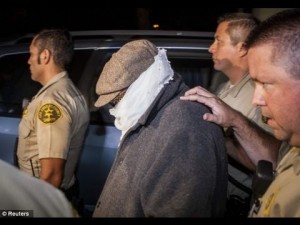
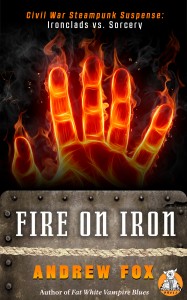
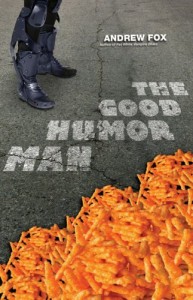
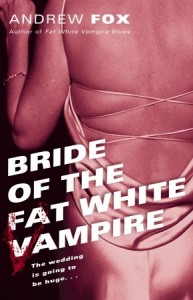
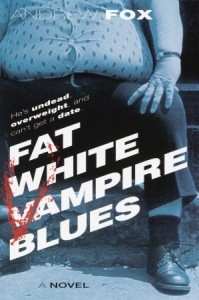
One thing which has bothered me slightly about this whole affair is how everyone has to point out how bad the film is. The quality of the film doesn’t matter. It should be irrelevant. A citizen of the United States, enjoying all the rights of a citizen, made a movie. Full stop, right there. That’s the only relevant fact.
I certainly agree. Quality of the expression has no bearing on its protection by the First Amendment. However, I have seen some commentators winding their way down the slippery slope of claiming that The Satanic Verses by Rushdie deserves protection because of its literary merits, whereas this film is so amateurish, its makers can be thrown to the wolves… that’s a dangerous road to go down.